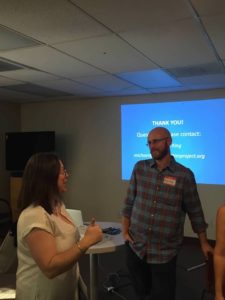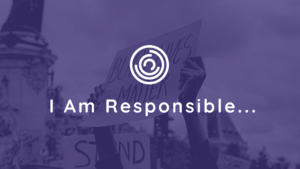In March of 2020, I was in Washington, D.C., leading a training on leadership principles for individuals working to address substance use in their communities. By that point, The Communities Project, the national initiative of which I am the Director and Creator, had hosted over 50 leadership and community organizing trainings across the nation over three years, training nearly 2,000 individuals.
Given the staggering results training attendees had produced in the aftermath of our time together, I felt considerable confidence in my ability as a trainer and facilitator. I believed in the material as well as my style and approach. And I received considerable feedback verifying my confidence.
That evening, I was sitting in my hotel room reviewing the evaluation surveys our attendees had provided at the end of our time together. While reading through the papers, I came to one specific response. In the section where we asked for final thoughts from people, someone wrote, “I think you are very snarky and sarcastic, and I did not appreciate that.”
“Snarky and sarcastic.”
Should this response be a red flag to me? Was I not effective in the training that day? Was The Communities Project heading down a negative path because my sarcastic snark had found its way into the training presentation? Do I need to change my entire approach? Am I an effective trainer at all?
Who knew that a single response, like the one I received, could create a series of escalating negative thoughts, each adding a new layer of meaning to this specific participant’s response.
Not Criticism, Just Feedback

Thankfully, none of these thoughts crossed my mind. I saw this person’s comment as feedback. Not criticism, just feedback. I didn’t read the statement: “I am a snarky sarcastic person who has allowed these elements of his character to block me from being an effective trainer.” Instead, I read, “My approach was not effective for this person.”
Now, if 15 people had written similar feedback on their forms, would that have landed differently with me? Absolutely. Because, as someone who leads trainings for large groups of leaders and organizers, I must be effective with them. If 50% of people in a training provide feedback that indicates I was not effective for them, I would absolutely want to reevaluate my approach. However, that is not what happened here — what happened here was one individual shared that I was not effective with them.
They provided that feedback, I heard it, and I took responsibility for my failure with that person. And I used this moment as a reminder that my approach may not be effective for some people. So I will own that feedback and be responsible for it.
To determine how effective I am as a leader with others, seeking feedback is critical. If we don’t actively seek feedback from those around us, we inevitably tell ourselves stories about how we are landing with others. Stories are in our heads; they are not the actual truth. We can never know how another is receiving us until we ask. We can guess and sometimes be correct in our assessment — but seeking feedback is the only way to learn.
And yet, people are consistently reluctant to seek feedback. In the trainings hosted by The Communities Project, the topic of feedback invariably leads to our most colorful discussions. Inevitably, most individuals take responsibility for their lack of interest in seeking feedback from those around them. However, they also express their desire to be effective in everything they do, leading to an inherent contradiction — wanting to be effective without knowing for sure how effective they are.
When people ask why they are hesitant to seek feedback, it becomes clear: people see feedback as criticism, and seeing it as criticism makes them reluctant to seek it.
A Contribution, Not Criticism
Who actively seeks criticism? Few among us. And yet, we desire to increase our effectiveness with others and generally understand that the only accurate way to assess our effectiveness is to ask. We’ve attempted to soften criticism by labeling it “constructive criticism.” However, the base notion of criticism being negative keeps us away, regardless of whether we try to mark it positively or not.
To break through this problem, we must redefine what feedback means. Rather than seeing feedback regarding leadership practice as criticism, what if we chose to see it as a contribution to our leadership?
By seeing feedback as a contribution, we allow ourselves to grow more actively in our leadership. When seeking contributions, we no longer cut off access to the external views that others provide. Suppose we are not landing effectively with an individual and are willing to receive their thoughts on us not as criticism but as a contribution to our development. In that case, we then have the opportunity to change the result we are producing.
The more feedback we allow ourselves to hear, the more refined our self-reflection practice can become. By receiving feedback, we stay grounded in reality rather than committed to our own stories. The intention of those from whom we seek feedback does not need to dictate how we hear things. Their intent doesn’t need to align with our perception. Instead, we can see all feedback contributing to our development.
Now, must we change our behavior based on every article of feedback we hear? Of course not. I will confess my snark and sarcasm have not subsided since receiving that feedback after the training in Washington, D.C.. Others have told me that it can even be an effective tool! I also know that, occasionally, my approach may not be effective for others. For that, I choose to be responsible.
Leaders in any space — substance use, criminal justice reform, or any other social justice-driven cause — must be effective with others to produce the results they seek. To produce these results, they must be effective with those around them. And in order to accurately gauge their effectiveness, feedback must be sought — consistently. When we choose to see feedback as a contribution to our growth as a leader, we open the door to endless possibilities and limitless results.



